eco friendly packaging and composting
Everything you need to know as an eco conscious Aussie business owner.
We know running a café or restaurant means limited storage, tight margins, and customers who care about sustainability but often get confused about bins. That’s why our approach is different.
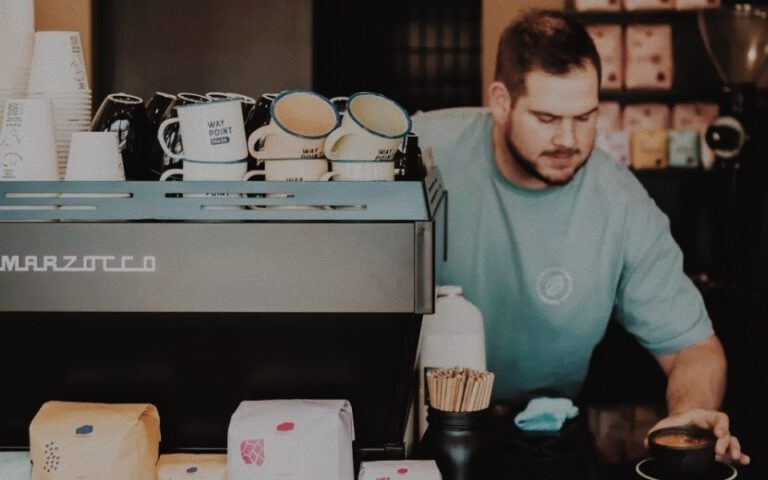
Our Approach on Eco Friendly Packaging:
Only certified home compostable products: no grey areas and no greenwashing. We’re very transparent and straightforward on how your customers can safely dispose of their products.
Education built in: signage, dedicated QR code full of educational materials on our cups, and simple messaging to help you and your customers.
Designed for real café life: lids that fit, cups that don’t leak, and packaging that holds up to heat and ice.
Eco friendly packaging shouldn’t be another stress point. With the right products and the right education, it becomes a way to engage customers, build loyalty, and show you’re serious about sustainability, without falling for greenwashing, no matter where you trade in Australia!
Our blog is designed to clear up some packaging myths and give you the no-BS education you deserve before adopting sustainable products.
Happy reading!
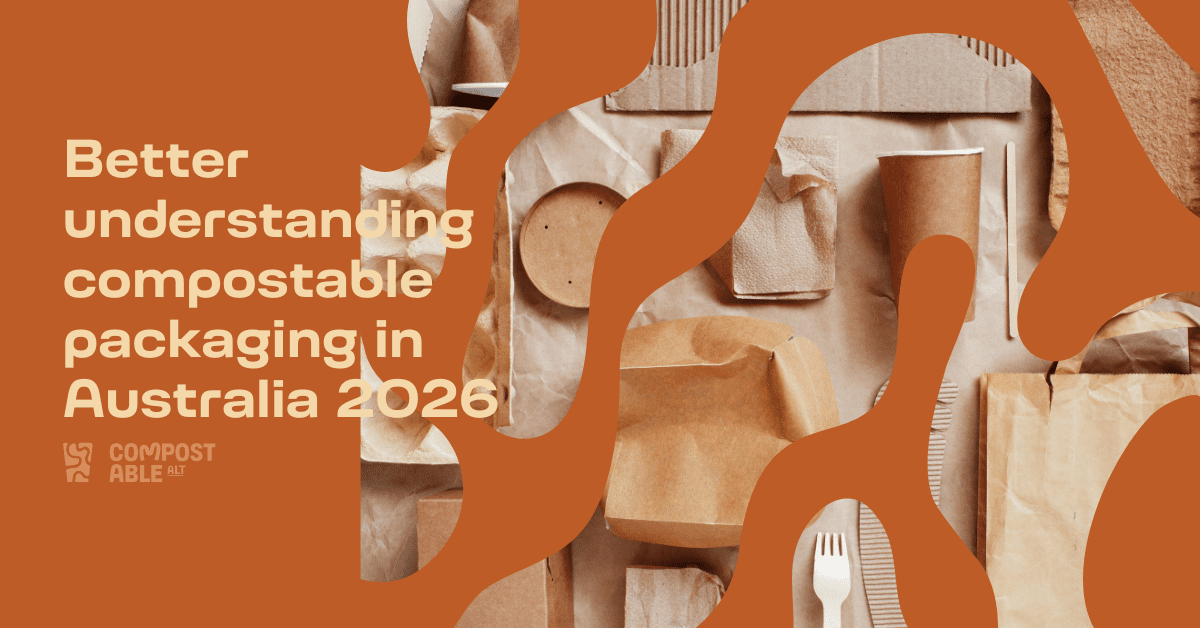
Better understanding compostable packaging in Australia in 2026
In Australia, we use 5.4 million tonnes of packaging per year, only 11,000 tonnes are certified compostable and 1,500 tonnes are recovered through composting. That’s an extremely low recovery rate. In this article we’ll have a look at the two different types of compostable packaging and the role of certifications to prevent greenwashing.
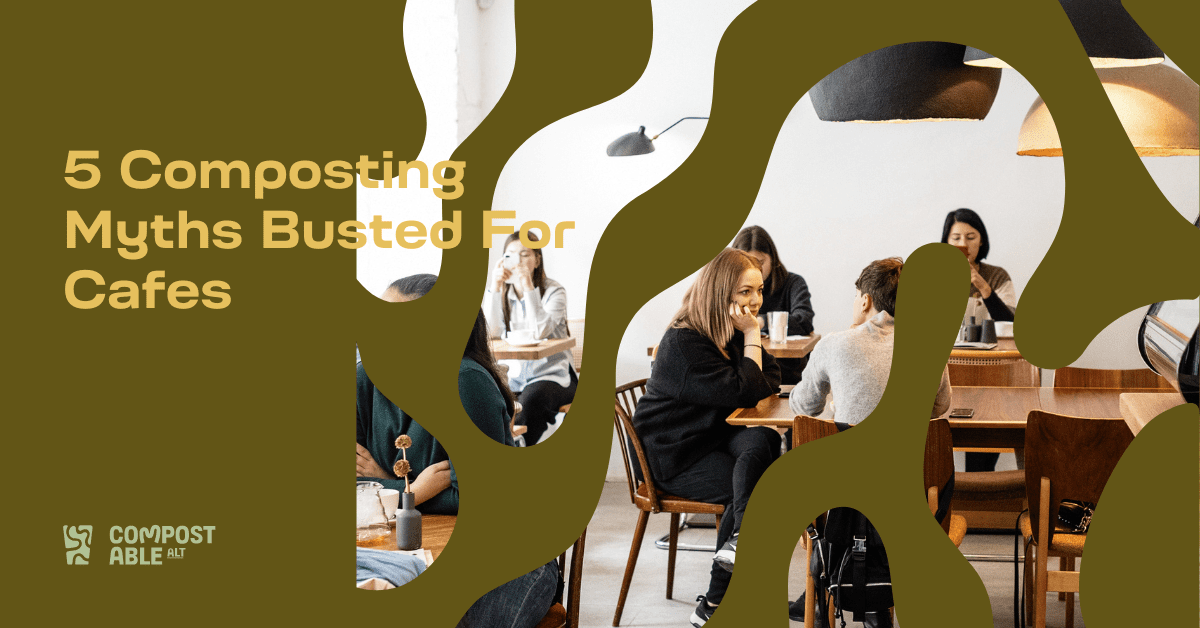
5 Coffee Takeaway Cup Composting Myths Busted for Cafes
Do you offer takeaway coffees? Let’s bust the 5 biggest coffee takeaway cup myths so you can make the right call for your business, your customers, and the planet.
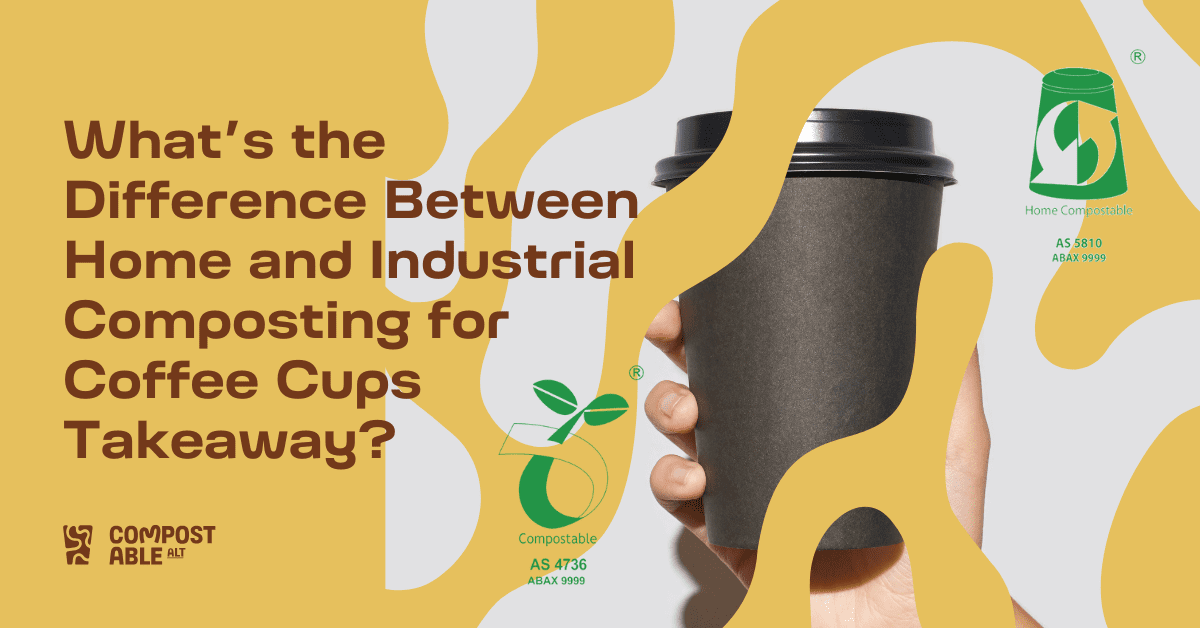
What’s the Difference Between Home and Industrial Composting for Coffee Cups Takeaway?
If you’re a café owner, a sustainability nerd, or just someone trying to do the right thing, knowing the difference between home and industrial composting is key to making better packaging decisions.
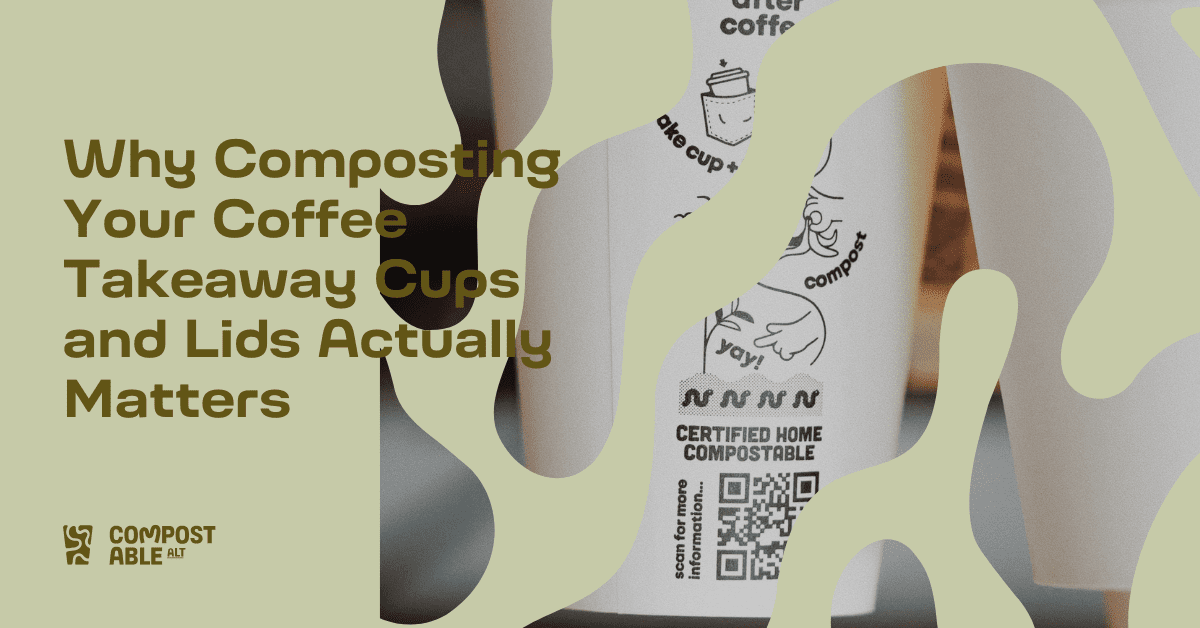
Why Composting Your Coffee Cups Takeaway Actually Matters
If you’re like most Aussies, coffee cups takeaway are part of your daily routine. Maybe it’s your morning long black from the local cafe or an arvo flat white on the go. But what happens after you’ve finished your drink?
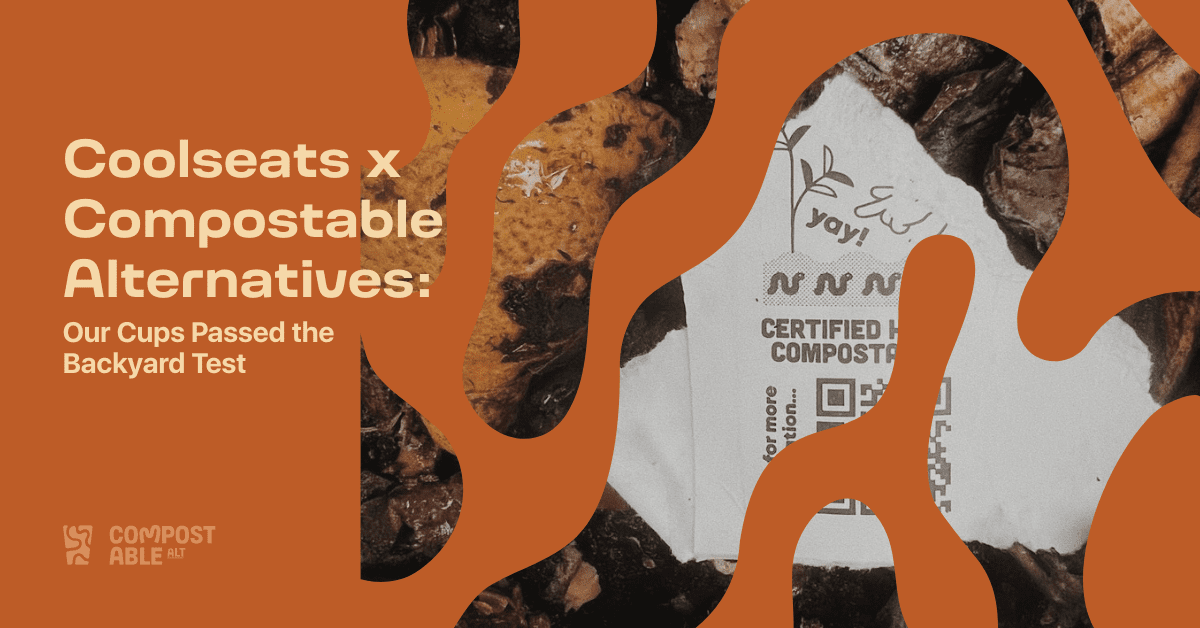
Coolseats x Compostable Alternatives: Our Cups Passed the Backyard Test
If you’ve ever doubted whether compostable coffee cups actually break down in real-world conditions, this blog post is for you. We recently partnered with sustainability legend Michael Mobbs, who ran a trial of our certified home compostable cups in one of his famous Coolseats – and the results are in:
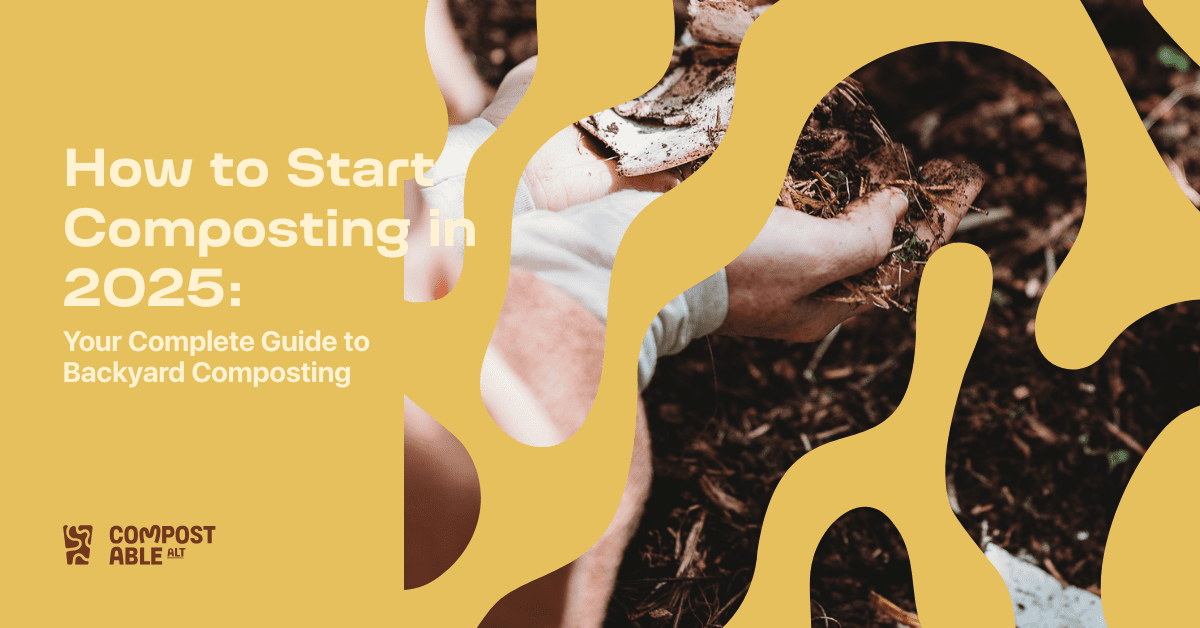
How to Start Composting in 2025: Your Complete Guide to Backyard Composting
More and more Aussies are looking for practical ways to cut waste and fight climate change from home. Composting is one of the easiest (and most satisfying!) ways to do just that. Whether you’re a seasoned gardener or a total beginner with a compost curiosity, this guide will walk you through how to start composting in 2025 – right in your backyard.
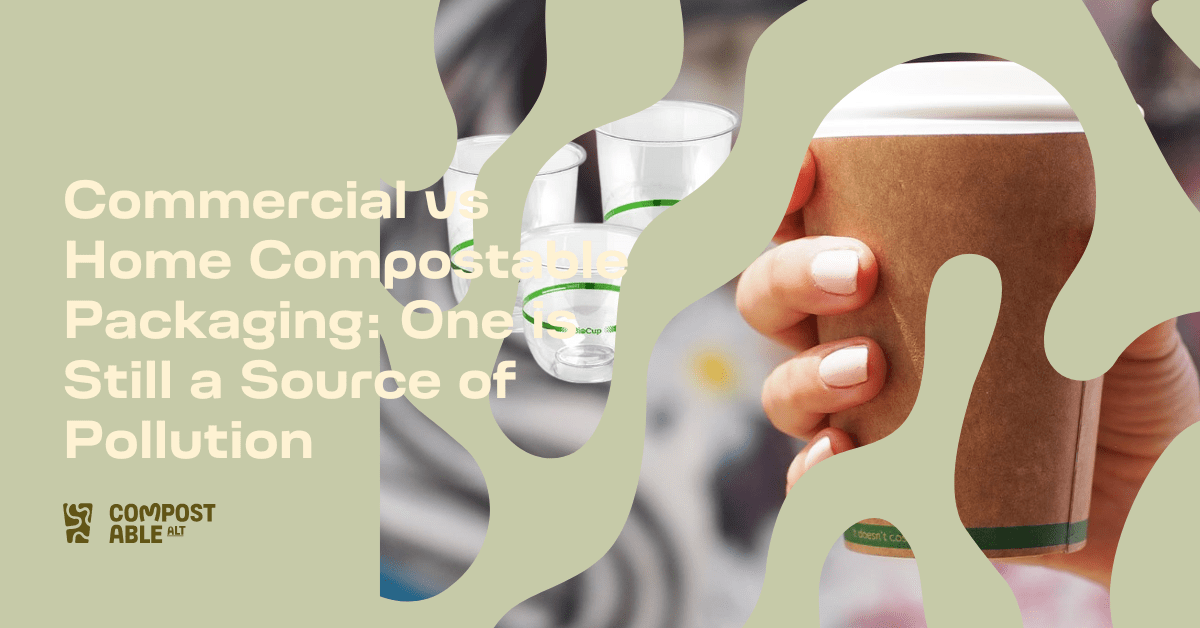
Commercial vs Home compostable packaging: One is still a source of pollution!
Let’s start with a simple question: What exactly are commercially compostable products? Commercially compostable products are made of bioplastics. > Bioplastics are not naturally present in the environment. They are made from components which are biobased. > Biobased means
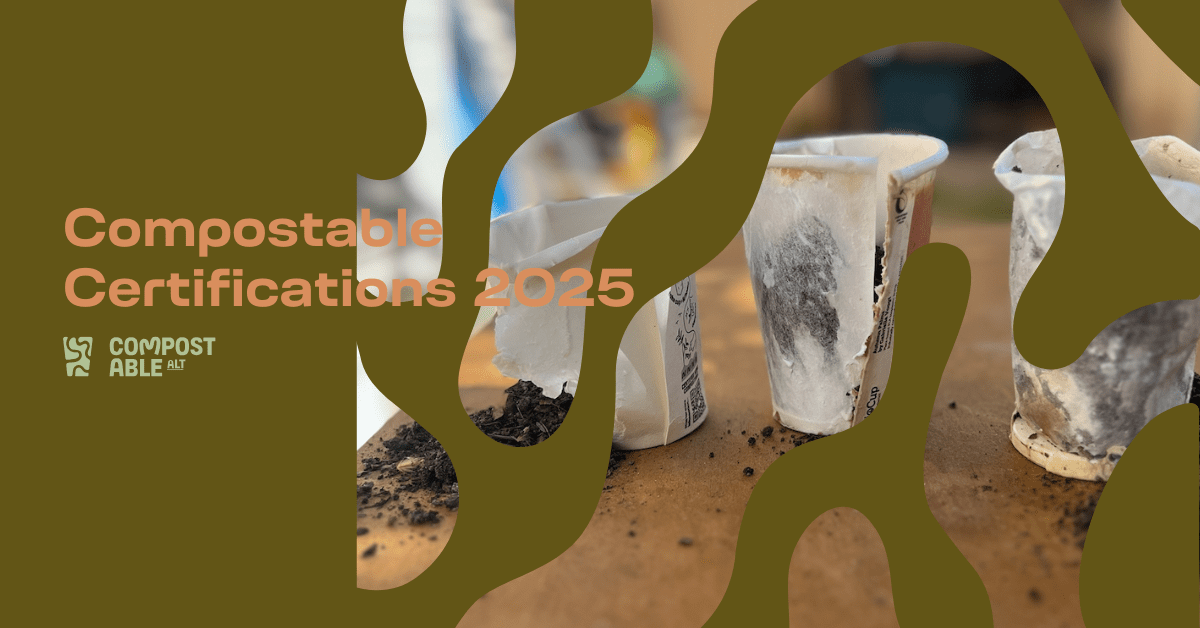
2025 Update on Australian and NZ Compostable Certifications
2025 Update on Australian and NZ Compostable Certifications There have been new updates to the Australian and New Zealand standards for compostable certifications. I’ve outlined the requirements and proper methods for disposal for home and industrially compostable products below to
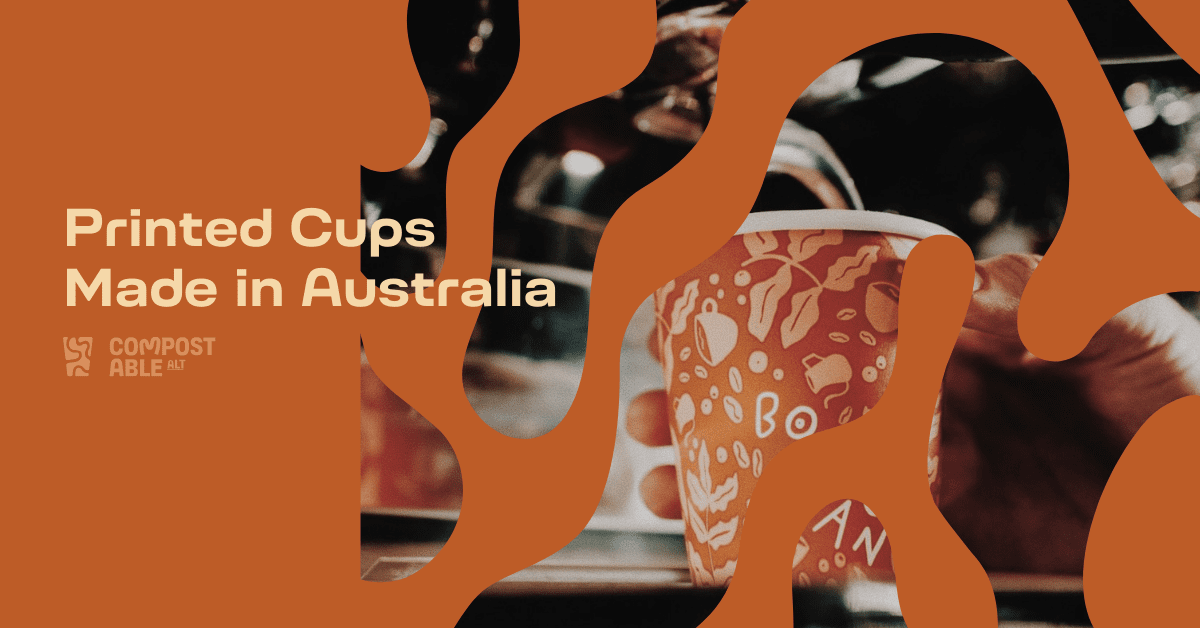
Printed Cups Made in AU (2025 Recommended)
Printed cups made in australia AUSTRALIAN MADE 5 weeks lead time High quality paper CERTIFIED HOME COMPOSTABLE Your next printed cups will be made in Australia, certified home compostable. They are available in single and double wall option, in 6,
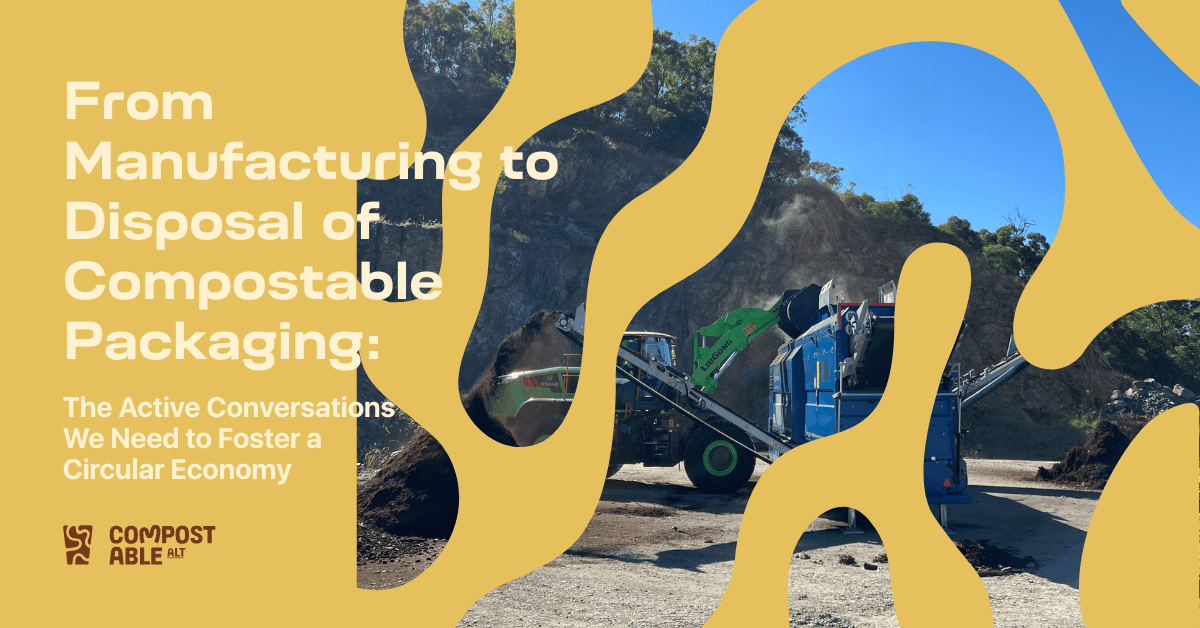
From Manufacturing to Disposal of Compostable Packaging: The Active Conversations We Need to Foster a Circular Economy
The recent 2024 Australian Organics Recycling Association (AORA) Conference highlighted a significant issue in the compostable packaging industry: the lack of representation from compostable packaging brands.
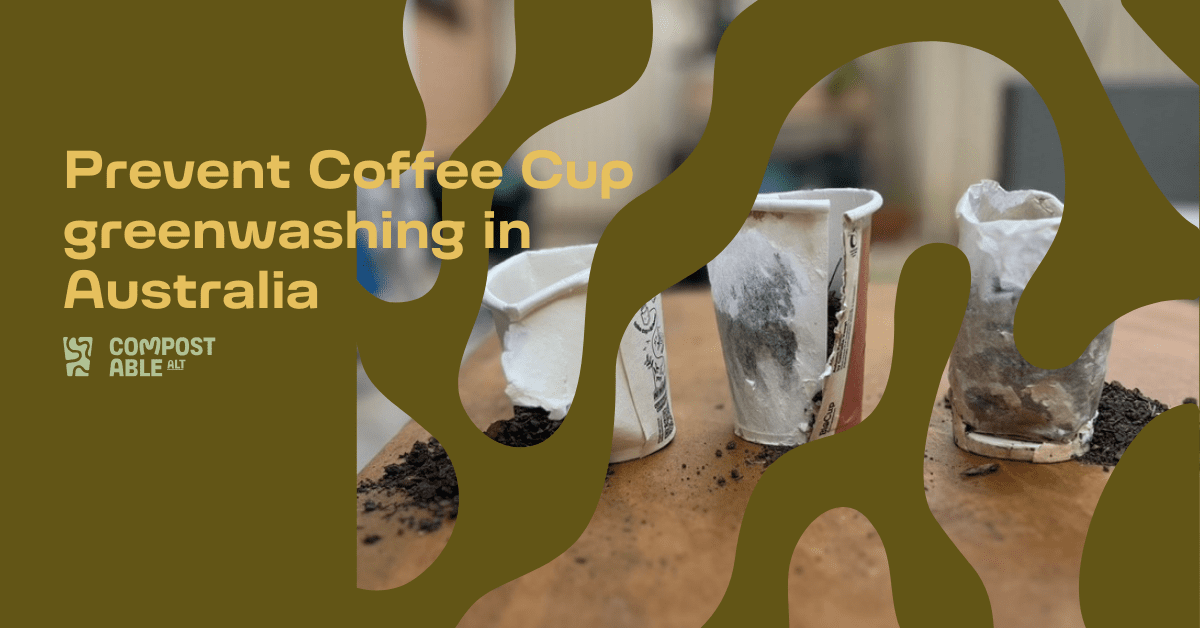
Coffee Cups Greenwashing in Australia: A 2025 Guide for Coffee Entrepreneurs
Prevent Coffee Cups Greenwashing: A 2025 Guide for Coffee Entrepreneur Australia’s coffee culture is booming, and with it comes the challenge of sustainable takeaway packaging. For coffee entrepreneurs, making the right choice in takeaway coffee cups is crucial not only
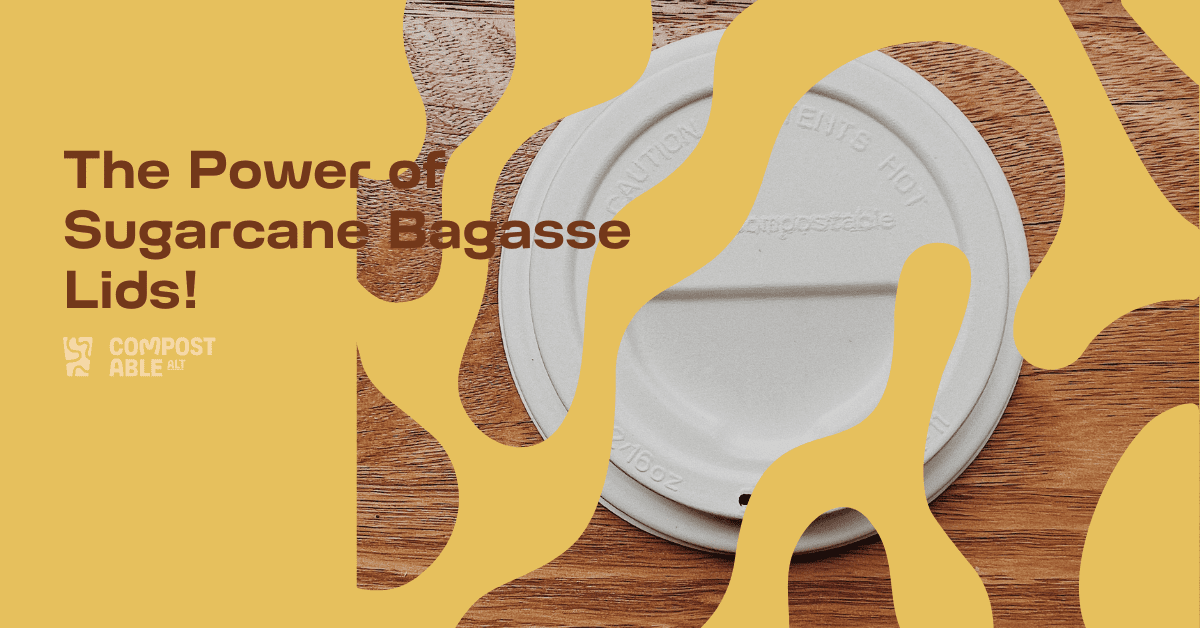
The Power of Sugarcane Bagasse Lids!
The Power of Sugarcane Bagasse Lids! Hey there, We’ve been proudly offering sugarcane bagasse lids since the beginning of our journey, and it’s high time we shine a spotlight on this game-changing product! What’s the Buzz about Sugarcane Bagasse Lids?
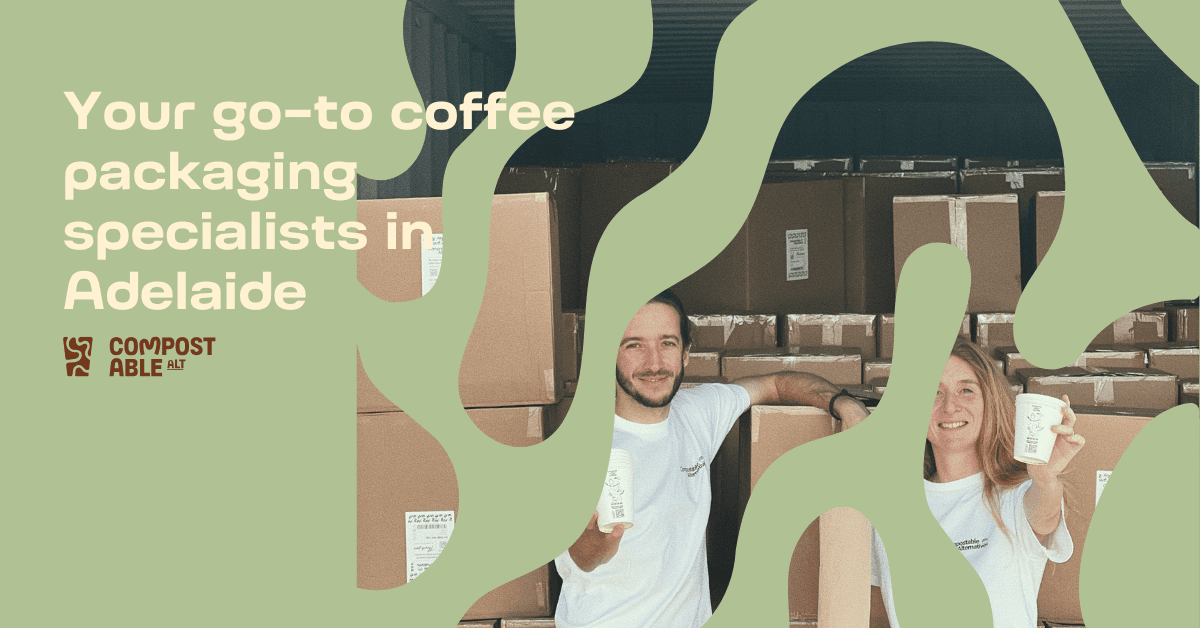
Compostable Alternatives: Your Go-To Coffee Packaging Specialists in Adelaide
Attention all coffee lovers in Adelaide! If you’re on the hunt for sustainable packaging solutions that keep your beans fresh and the planet happy, look no further than Compostable Alternatives. As your trusted coffee packaging specialists in Adelaide, we’ve been leading the charge in eco-friendly packaging since our inception.
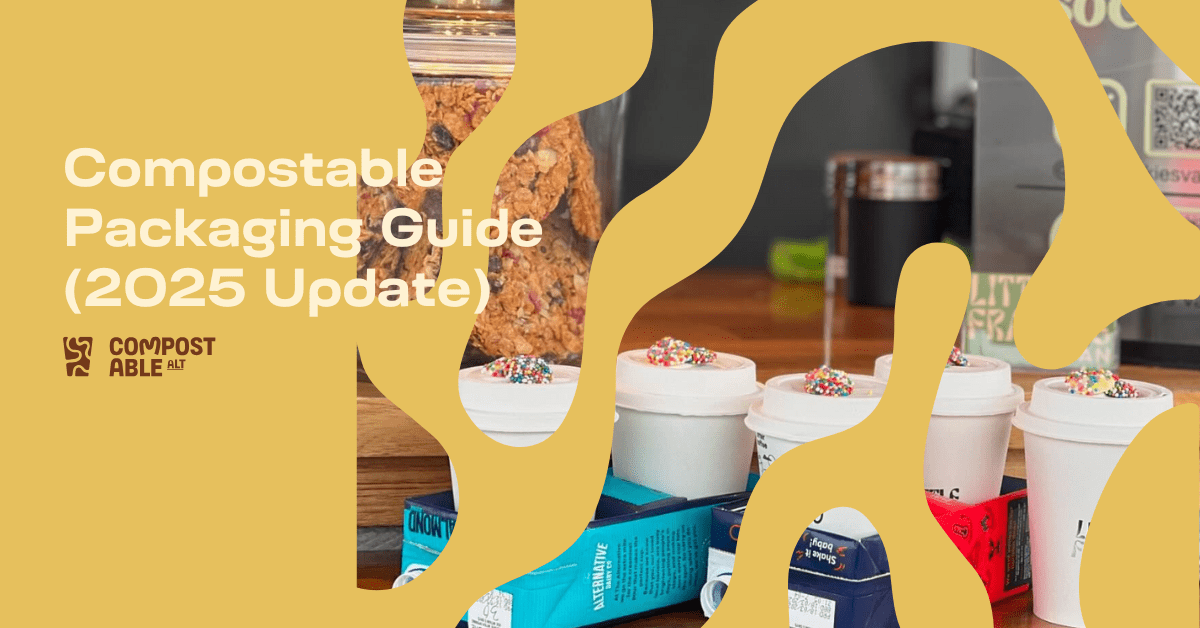
The Ultimate Guide to Compostable Packaging Materials 2025
In the ever-evolving landscape of sustainable business practices, compostable packaging emerges as a beacon of hope for environmentally conscious cafe owners, business managers, and baristas. Unlike the conventional ‘take-make-waste’ approach, compostable packaging adheres to the principles of the circular economy, offering a responsible disposal solution with a significantly lower impact on our planet.
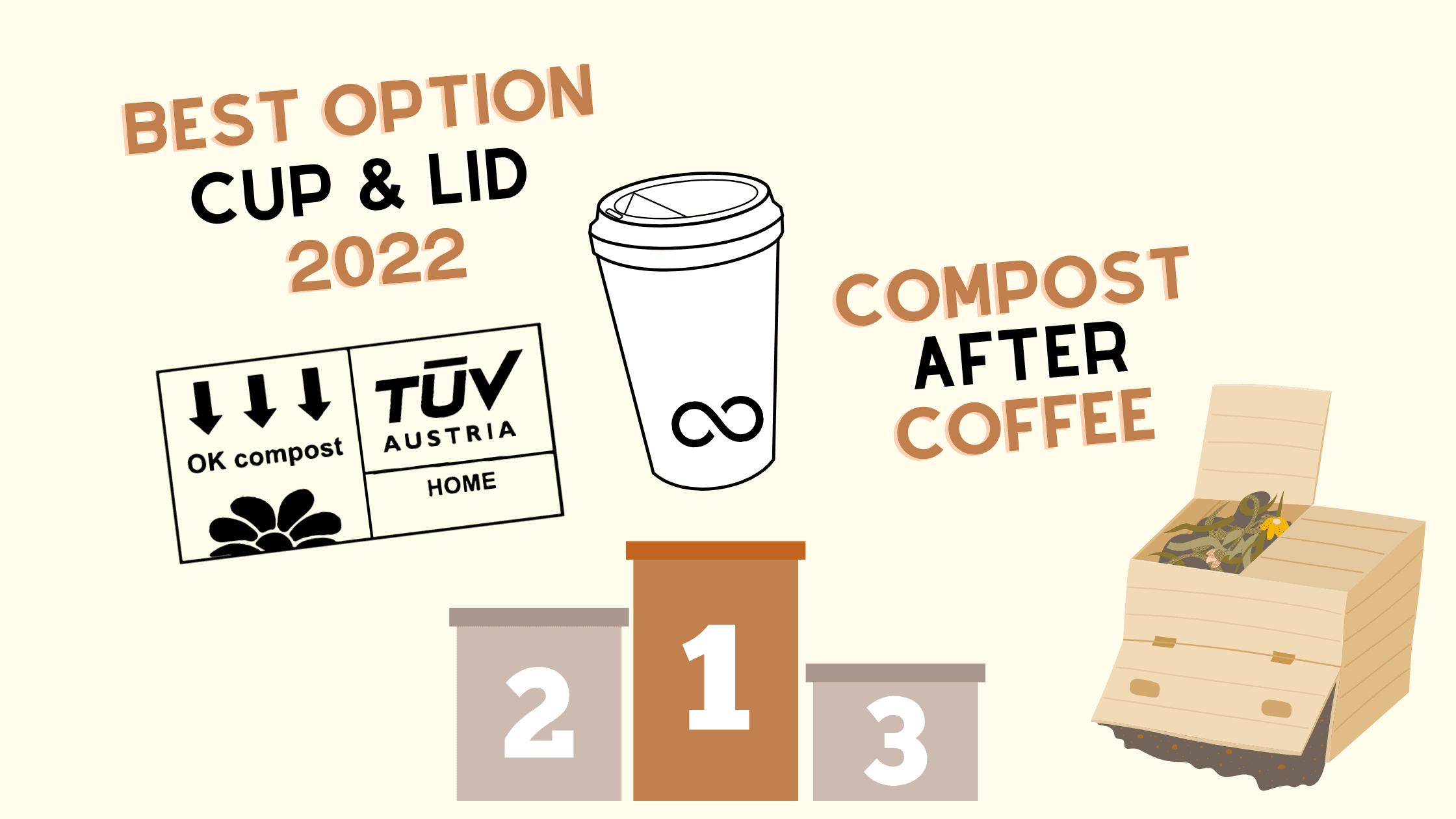
Home Compostable Coffee Cup : 2022 Best Seller!
Certified Home Compostable Coffee Cup & Lid! Best Seller in 2022 Updated: April 2023 Compost After Coffee We are excited to announce the launch of our new fully home compostable cup and lid, which we have developed after extensive collaboration

Lights on Home Compostable Certifications in 2025
The meaning of home compostable Products that break down and return to nature within a short timeframe for the disintegration and biodegradation, with toxicity measurement and without human intervention. For these products to be certified, they need to be tested
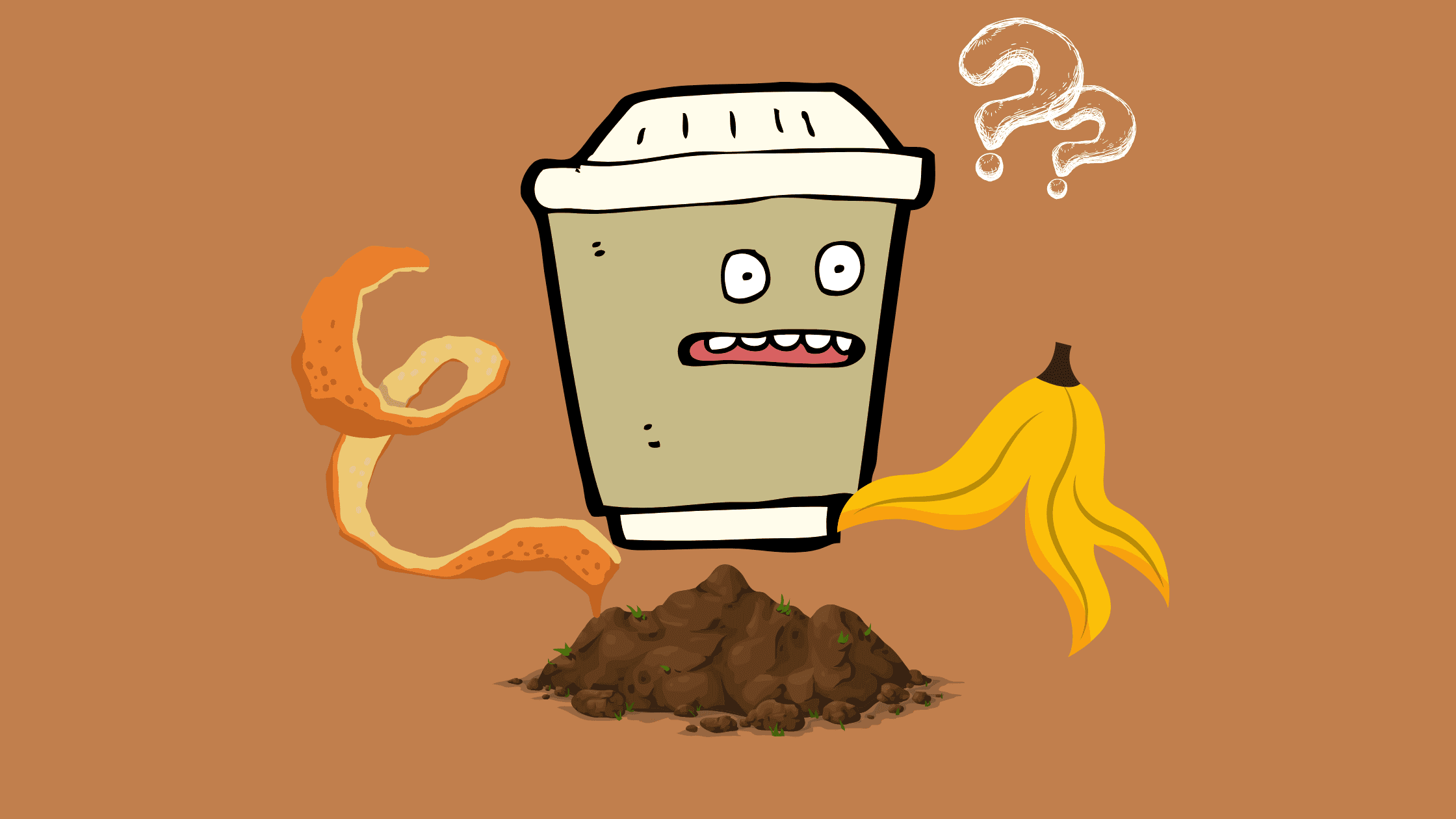
Coffee Takeaway Cups Are They Compostable? 2022 Update
Coffee Takeaway Cups: Are They Compostable? 2022 Update for Australia 2022 UPDATE We have release a home compostable certified cup and lid available here! 2.7 million Australians love their daily takeaway morning coffee. If you are one of them and,

The end of plastic and bioplastic straws, cutlery and stirrers from March 1st, 2021
Since 1 March 2021 plastic and bioplastic straws, cutlery and stirrers are officially banned in South Australia!
4 Biggest Myths About Eco Friendly Packaging Busted:
Myth 1: “Biodegradable” means it’s good for the planet.
Not true. Biodegradable just means it will eventually break down, sometimes over years, and often into harmful microplastics. Only certified compostable packaging guarantees safe decomposition.
Myth 2: All compostable packaging can go in the green bin.
Wrong. Most councils in Australia don’t accept compostable packaging in the FOGO bins, even if they’re certified. The safest bet is opting for home composting so anyone can compost the packaging in their backyard compost.
Myth 3: Recycling is always the best option.
Not in hospitality. Greasy pizza boxes, coffee cups, or salad bowls usually can’t be recycled because of contamination. Composting works better for food-soiled packaging. Recycling works for clean materials.
Myth 4: Eco friendly packaging costs too much.
While unit costs can be higher than plastic, the bigger savings come from brand reputation, customer loyalty, and reduced landfill waste costs. Many café owners find customers expect sustainable options now.
FAQ for Australian Cafes & Hospitality on Eco Friendly Packaging
1. What does “eco friendly packaging” mean?
Let’s be honest here, we hate the term “eco friendly packaging” as it makes people feel good about a product that may not be so good for the environment. But “eco friendly packaging” is a term used by many meaning it is designed to reduce environmental impact. In reality, true eco friendly packaging is certified compostable, recyclable, or reusable – not just marketed as “green.” Our focus is on home compostable packaging, so customers can compost it in their backyard, instead of relying on inconsistent council systems and different rules based on different States/Councils.
2. Why is eco friendly packaging a challenge in Australia?
Cafés and restaurants face:
Patchy FOGO services across councils. Only 43 out of 536 councils accept compostable packaging in the green bin. That’s only 8% of Aussies that are able to do the right thing…
Confusing and unregulated labels like “biodegradable” or “made from plant” that mislead both staff and customers.
Rising costs and supply chain pressure.
That’s why it’s about choosing the right product for your waste stream and giving customers a clear and honest disposal pathway (not just pretending!) As a business owner it is your responsibility to educate yourself on what products are accepted in your local government area and chose the best option accordingly. Don’t blindly listen to packaging sales rep and always do your own research. That’s when you can have a real impact.
Hint: certified home compostable products will always have a pathway to recovery no matter where you are in Australia!
3. Is compostable packaging better than recyclable packaging?
In most café situations, yes. Once packaging touches food or coffee, it’s hard to recycle. The kerbside recycling bin only accepts clean plastics and containers. Compostable packaging avoids this problem: it goes straight into a compost bin and turns into nutrient-rich soil instead of adding to landfill waste that creates methane.
4. What certifications should I look for?
Look for AS 5810 (Home Compostable) or AS 4736 (Commercial Compostable) if you are in one of the 43 councils that accept compostable packaging. Anything else, especially vague “biodegradable” claims, is usually marketing spin (greenwashing!).


